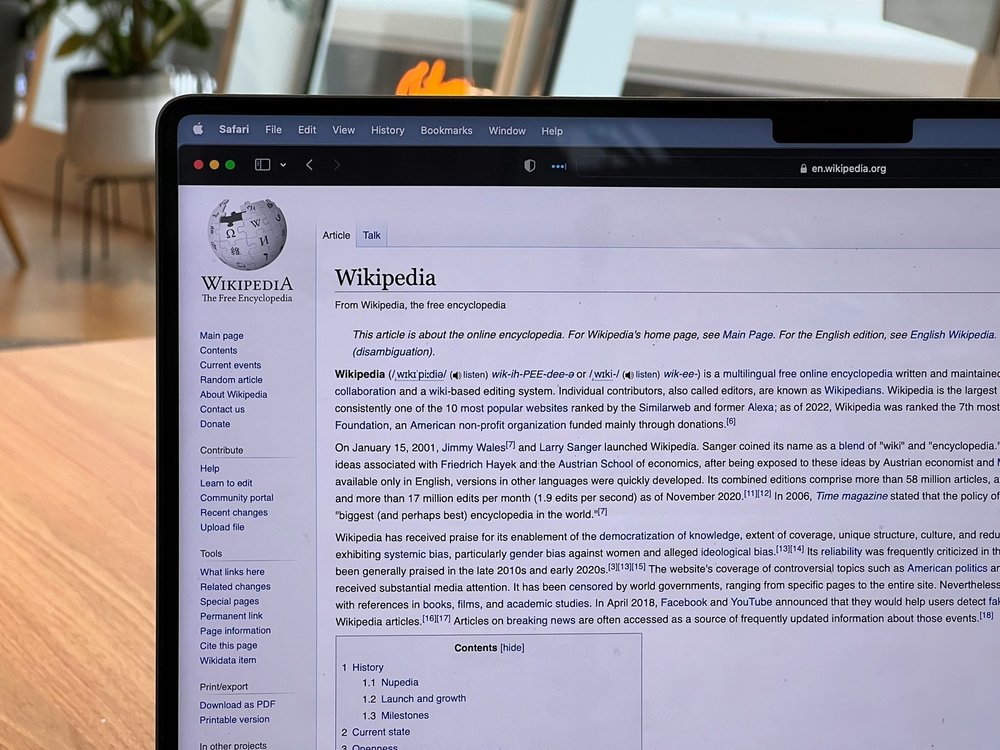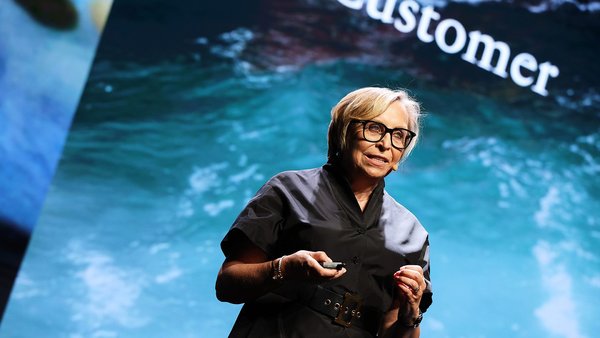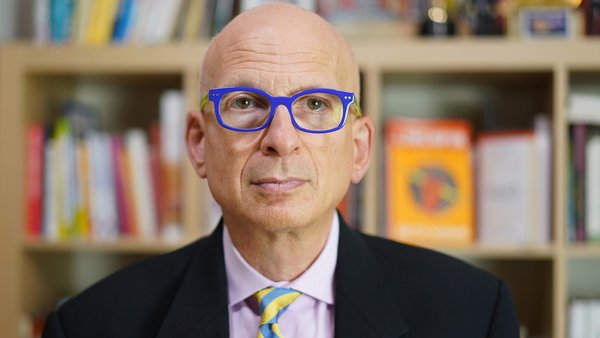Charlie Ebdy’s Strategy Diet /
OMD UK’s CSO shares his tips and techniques for better strategy, from cultivating a healthy disrespect for success to imitating the shamelessness of pop culture
James Swift
/
Photo by Sebastian Coman Photography on Unsplash
Have you ever wanted to know what the ad industry’s sharpest strategists like to feed their brains or what resources they swear by when tackling a brief?
We have. So we’re asking.
Charlie Ebdy is the chief strategy officer at OMD UK, where he has been since 2019. Before that, Ebdy spent almost nine years at Vizeum, rising to chief strategy officer. He has also been named the deputy convenor for the Institute of Practitioners in Advertising’s effectiveness awards this year, and in January wrote an article about trends that is worth reading.
What media do you consume that makes you better at your job or helps you think about strategy generally?
It’s just unavoidably true that as marketing strategists we’re better when we know more about the businesses (and wider economic context) behind our briefs, so that’s where I start. The Financial Times is great, so is Bloomberg, so is Harvard Business Review, so are the business pages of your preferred news brand. If you can’t subscribe, at least follow them on your preferred social platform. (And if, for anyone reading, economics may as well be written in wingdings, Economics: A User’s Guide by Ha-Joon Chang is a great place to start.)
But marketing strategy is an inherently human practice. It seeks to influence real people, and it is decided on and executed by real people. So nurturing meaningful passions out in the real world, away from marketing, is equally important. Appreciate how things outside your narrow band of vision come to be, what life is like elsewhere, why people do what they do, and you’ll be rewarded in the day job with valuable parallels and hidden truths; new answers are so often about creating connections between disparate fields.

Photo by Luis Santoyo on Unsplash
I remember realising the necessary difference between the marketing tactics of smaller and bigger brands while reading a blog on how bad NFL teams beat good ones; I learned how ideas catch on from reading about the history of Hollywood, about better collaboration from food and professional kitchens, and about the creative process from my love of music. (I should also be clear that this is a secondary benefit. I’ve mainly enjoyed brilliant films, food and music.) In marketing, your interests outside of the office make you better inside of it.
Are there any resources that you typically turn to first when working on a brief?
I try to remember Daniel Kahneman’s idea about the importance of the outside view: if you’re too close to a problem, if your frame of reference is the problem itself and your only knowledge is the business it comes from, you are likely to have a distorted view of what is possible. I think clients pay us to be the outside view, the people who can provide them an informed perspective once removed.
But you can only do that if you first understand the business you’re working for, so first look up the annual report, read the corporate history, trend out the brand’s customer data from YouGov or TGI. Understand how the business was built and how it is seen by customers today.
Microsoft Word will make you better at strategy and PowerPoint will make you worse.
Charlie Ebdy, OMD UK
Then look at its competition and ask: how does my client compare? Where are we weak or strong? And — even if we’re the leader — why are others succeeding? What are we doing that they aren’t? What are they doing that we aren’t? And what are the things that everyone in the category seems to believe is important? There will likely be award papers — such as historic IPA Effectiveness Awards — from similar categories, and you should read them.
You want to be able to tell a story of the brand you’re working on, why it’s in the situation it is, and what it has a chance to successfully do differently or better than the competition.
Who is someone that you follow/read/watch for their opinions and ideas?
I try to stay abreast of the latest marketing research, which is what I rely on LinkedIn for [ed’s note: there’s also a Contagious IQ content series for that…], but some of the debate is frustratingly insular. I am just about holding on to Twitter for its ability to connect me with some of the world’s most interesting people (just tightly control your following list, your block list, and interactions, don’t stray below the fold, and don’t lean on the algorithmic feed too heavily). But generally I draw more inspiration from the people or platforms that offer accessible expertise in the fields I love — Bloomberg’s Odd Lots and Matt Levine’s Money Stuff in business; Andy Hayler and Jonathan Nunn’s restaurant reviews; Pitchfork for music (for now, at least); Anthony Beevor’s military history; too many football analysts and movie critics to mention.
Is there anyone or any resource that you think strategists rely on too much that is counterproductive or unhelpful?
This is going to sound ridiculous from someone convening a major awards programme, but we all spend too much time poring over examples of what worked. Sometimes, of course, success is a straight line: smart people dissect a difficult problem, faithfully execute a suitable solution, see results. And sometimes - not always - the solution can be proved to have driven the results; sometimes - not always - those individual lessons can be generalised. Sometimes. But I’m more interested knowing about everything else: what happens when people achieve success with the ‘wrong’ answers; what happens when someone tries the right answer and fails.
You owe it to yourself and your clients to be able to easily detach process and outcome, so cultivate a healthy disrespect for success: fetishizing positive outcomes leaves you too credulous, too willing to accept the status quo. As a strategist, you always want to be the one person thinking ‘…really?’, even when looking at your own best work. Trust that better process will, in the long-run, beat the odds.
It's why – beyond the schadenfreude of it all – I always love stories of corporate failure: I’ve learned so much about business from reading Barbarians at the Gate, about the leveraged buyout of RJR Nabisco, Losing the Signal, about Blackberry, Flying Blind, about Boeing, Smartest Guys in the Room, about Enron, and When Genius Failed, about the collapse of a hedge-fund which claimed to have out-smarted the entire global finance industry. We would all benefit from balancing stories of success with examples of failure.
What do you think is the most underused resource for better strategy?
Microsoft Word will make you better at strategy and PowerPoint will make you worse.
PowerPoint is a great storytelling aid, but one that imposes no discipline on the story you create or how it is constructed; write an answer in PowerPoint and watch the bullshit seep in between the images and the quotes, the section dividers and the mislabelled charts. But write your argument in Word so that the entire thing stares back at you from the screen — coherent or otherwise — and you put your recommendation in a position of scrutiny it doesn’t get elsewhere, whether it’s for an early internal chit-chat or a more formal discussion with a client. Never write an argument longer than two pages, and finish your first draft at least a day before it’s needed: you’ll always find 30% of the word count to chop out the next day, and spot holes you didn’t see the first time.
Powerpoint should always be the last application you open.

Photo by Teemu Paananen on Unsplash
Is there anywhere you go when you’re struggling with a brief or a place that seems to help you work or think?
It’s trite, but time away from a problem is essential: close the laptop, get on with something you love, something entirely unrelated, and let the recesses of your mind do their work. It’s why — apart from the unacceptable physical and mental harm that it wreaks on you and your team — that working all-hours on pitches is so fruitless: it prevents you getting the distance you need. Your work will be better for having limited your time with a problem.
Also, you’ll be much clearer on the holes in your argument after you’ve talked somebody through it, end-to-end. Especially someone who doesn’t know the brief or the client. Even if they say nothing back, the mere act of saying it aloud to another person will make it obvious where the gaps are.
Office etiquette: music or no music?
No music. Ironically, given the ongoing conversation about getting back into the office, there’s lots of historic evidence that open-plan offices are relatively bad for productivity, because they’re so distracting. For me, someone easily distracted at the best of times, music only makes that worse.
(I’m also conscious that if you’d asked me the same question in 2008 I would have said ‘music on, all the time’, but I’m trying to convince myself that my subsequent change of heart has to do with my relative workload now rather than an irreversible march towards a very middle-aged joylessness.)
What’s the best free resource for a strategist?
I think the answer is Wikipedia and I’m not sure it’s even close: it’s the single greatest repository of knowledge in human history, it’s completely free, and if you ever have an intellectual itch to scratch you likely have a few thousand words to get you started.

Photo by Oberon Copeland @veryinformed.com on Unsplash
What sort of media/resources would you recommend to someone just starting their career as a strategist?
I’m not sure if Picasso ever actually said ‘learn the rules like a pro, so you can break them like an artist’, but it’s as true in life as it is in strategy. You just can’t perform at a high level unless you have a grounding in strategic thinking, in business, and then in how brands and marketing work. Which means you’ll have to read a lot.
For a primer in strategy, read Richard Rumelt’s Good Strategy/ Bad Strategy; for applications in business, John Kay (particularly Foundations of Corporate Success), Roger L Martin, Michael Porter, Clayton Christensen, Peter Drucker, and Paul Leinwand & Cesare Mainardi’s Strategy That Works; for brands and marketing, read the textbooks – I like Sharp’s Marketing, and Shaw’s Marketing Payback – read all the Binet & Field IPA papers, read Stephen King and Jeremy Bullmore. Do the IPA’s courses, particularly the Excellence Diploma.
But don’t take the theories these thinkers present at face value: you’ll learn more when you examine them through the lens of complex corporate history, when you treat strategy as a real-world practice rather than an ideological exercise. There are great books on all sorts of businesses, from Coca-Cola to McDonald’s to Amazon to Goldman Sachs, and you should read some of them. For modern perspectives, pick up Brian Merchant’s One Device, on the history of the iPhone, or Sebastian Mallaby’s Power Law, on the history of venture capital. Embrace people like Nassim Taleb, who constantly challenge received wisdom, or books like The Enigma of Reason, which patiently and comprehensively debunks most popular theories of how we think, including Kahneman’s much-cited System 1 & 2 framework. And most obviously, read enough disconfirming evidence inside marketing theory to realise there are no ‘rules’ as strongly proven as their proponents claim.

Photo by Rosa Rafael on Unsplash
What’s something that happened in pop culture that showed a better understanding of people than advertising?
To me the best of pop culture isn’t necessarily a better understanding of people than in advertising — although we could debate that — but a certain shameless and instinctive way of addressing it. Think of how, in the last decade, pop musicians have been quicker in reacting to the signals of what their customers want from their product, rather than spending years tied up debates about it (as it sometimes feels that we are): it could be BTS nurturing their (wildly successful) fanbase, Rihanna distilling her mid-2010s hits down to their most distinctive sonic motifs, Taylor Swift finding an unbeatable formula for cultural impact, Beyonce articulating a coherent, through-the-line brand vision.
They’re all responding to the signals their listeners and fans respond positively to, no different to how any advertiser could, but I suspect Rihanna wasn’t worried about whether repeating key sonic assets throughout her songs — which people liked — cheapened her art, nor is Taylor Swift regretting playing the hits. There’s no shame in keeping it simple and giving the people what they want.
Want more of the same? /
We don’t just write about best-in-class campaigns, interviews and trends. Our Members also receive access to briefings, online training, webinars, live events and much more.







